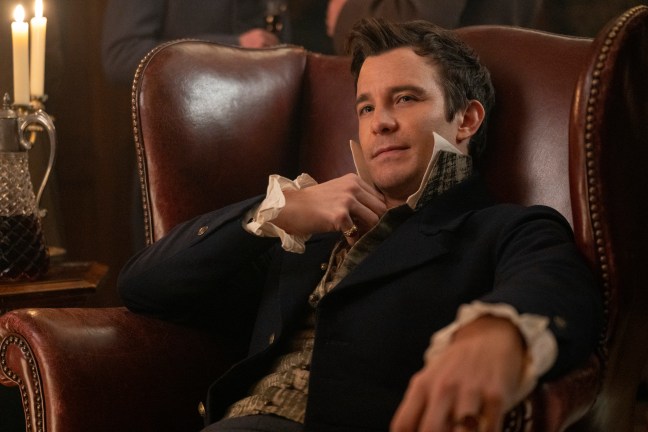When I was 16 I wasn’t in a fantastic place. I was in school, and doing quite well academically, but I wasn’t sure what I wanted to do with my life, or who I was. I had no self-confidence at all and was pretty miserable. It’s probably when I was least happy in my life. I’ve always been an anxious, worrisome person. I’ve always over-thought things. I have no idea why this is ingrained in my personality, it’s just the way I’ve always been. A serious person, a shy person, someone who thinks about things very deeply, always worrying what people think of me. I know that sounds weird for a comedian and I should be full of fun and joy. But most of my life has been a battle to embrace the joy when I see it. I find it difficult talking about this time in my life actually, because it’s probably the time when… it was not a great time in my life.
I’ve always been an anxious, worrisome person. I’ve always over-thought things
I did quite well at school and ended up going to study law. But that was because I couldn’t think of what else to do. It was medicine or law. But I had this feeling of not being comfortable in my own skin, being aware that I didn’t fit in. I wanted to be Greta Garbo but… you can’t be Greta Garbo can you? I quite fancied going to drama school but that’s not what people did. I didn’t do drama at school. There were no comedy clubs. In 1992 there wasn’t a lot of choice – if you were reasonably bright you went to university and you got a job.
I wasn’t the class clown or ‘the funny one’ in my group. But I’d always wanted to try stand-up comedy. For me it was about having a strong need to express myself. I’m not good at art or poetry. I’d always felt slightly repressed by not being able to express myself. Then The Stand – a lovely, inclusive comedy club which really welcomed new talent – opened in Glasgow just after I turned 30. And I thought, well, if I don’t try it now I’ll never do it. The first time I was physically sick before I went on. I smoked about 40 cigarettes. I felt awful. My material was probably terrible. But people laughed occasionally and that was enough. When I got on stage I just knew it was the right place for me to be. It felt like having a blocked tap for 30 years and then it suddenly released itself. On stage I’m the person I wish I could be in real life. I’m confident and flirtatious. It’s where I feel most at home.

I’d love to be able to tell my 16-year-old self that one day she’ll be on the biggest show on television with her wife sitting in the audience. That’s a huge thing. At 16 I was well aware of my sexuality, I was never in any doubt about that. But it just felt quite lonely. There was no internet to talk to people. You couldn’t find any information about where you might meet people. There was just no community at all. Until I got to university I didn’t know there were other gay people out there. I never felt guilty or ashamed but it did take a bit of courage to come out at that time. Not because of the people around me – my parents are nice, gorgeous people. It was society’s reaction, reading in the paper about a debate in the House of Lords in which gay people were described as paedophiles and evil. But I think that fired up my activism in later life. I never want a young person to go through what I, and many other people, went through at that time.
I don’t think I could give my younger self much advice, except to say, just wait 30 years. Because one day you’ll be on Strictly Come Dancing and you’ll meet Gillian Anderson, and you’ll be dressed as Wonder Woman [below], and it’ll be fine. If you told my 16-year-old self what she’d end up doing, she just wouldn’t believe you. I pinch myself all the time. I did a sitcom called Dead Boss and I shared a scene with Jennifer Saunders. Sandi Toksvig is one of my friends. If you’d told my younger self about that she’d say, “absolute nonsense”.
I’m always waiting for the worst case scenario
My wife always says she wishes I enjoyed my successes more. Instead of waiting for something bad to happen. She’s a very positive, upbeat, relaxed woman, so we’re kind of yin and yang. I have that thing of, if I find joy in myself, I feel I’m bound to get it in the neck. If I get above my station, I’ll get cut down. I’m always waiting for the worst case scenario. One of the best things I ever did was go for cognitive behavioural therapy, to change my brain’s instinctive reaction to things. That helped a lot. And my wife helps a lot, because she’ll sit down with me, look at the situation and say, is there any evidence that something bad is about to happen? And there usually isn’t.










